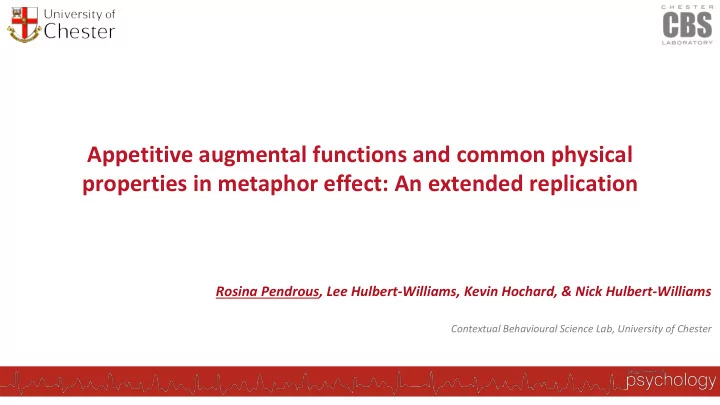

Appetitive augmental functions and common physical properties in metaphor effect: An extended replication Rosina Pendrous, Lee Hulbert-Williams, Kevin Hochard, & Nick Hulbert-Williams Contextual Behavioural Science Lab, University of Chester
The study Understanding metaphors rests on ability to derive relations based on relevant contextual cues The more functionally similar properties there are, the more apt the metaphor Experimental work (Sierra et al., 2016) has shown that additional cues which specify: (i ) Common properties (“ cold ”) encouraged verbal generalisation to a “ cold ” task, increasing pain tolerance (ii) Appetitive augmental functions (“something very important to you”), also increasing pain tolerance Extended replication with greater experimental control
Method Double-blind randomisation, stratified by sex ( N =89; 77.5% female) Pre test Trait psychological flexibility, generalised pliance, cognitive fusion, and analogical reasoning ability Pain tolerance Condition A Condition C Condition B Condition D Common Augmentals Common Neither properties and only ( n =22; properties only ( n =22; 72.7% augmentals ( n =23; 77.3% female) ( n= 21; 81.8% female) 78.3% female) female) Post test Pain tolerance
Results Did not replicate
For further information Rosina Pendrous, MRes Student and Research Assistant t: 01244 513479 w: www.cbslab.uk | http://www.chester.ac.uk/psychology/cruph e: r.pendrous@chester.ac.uk twitter: @rosiependrous
Recommend
More recommend